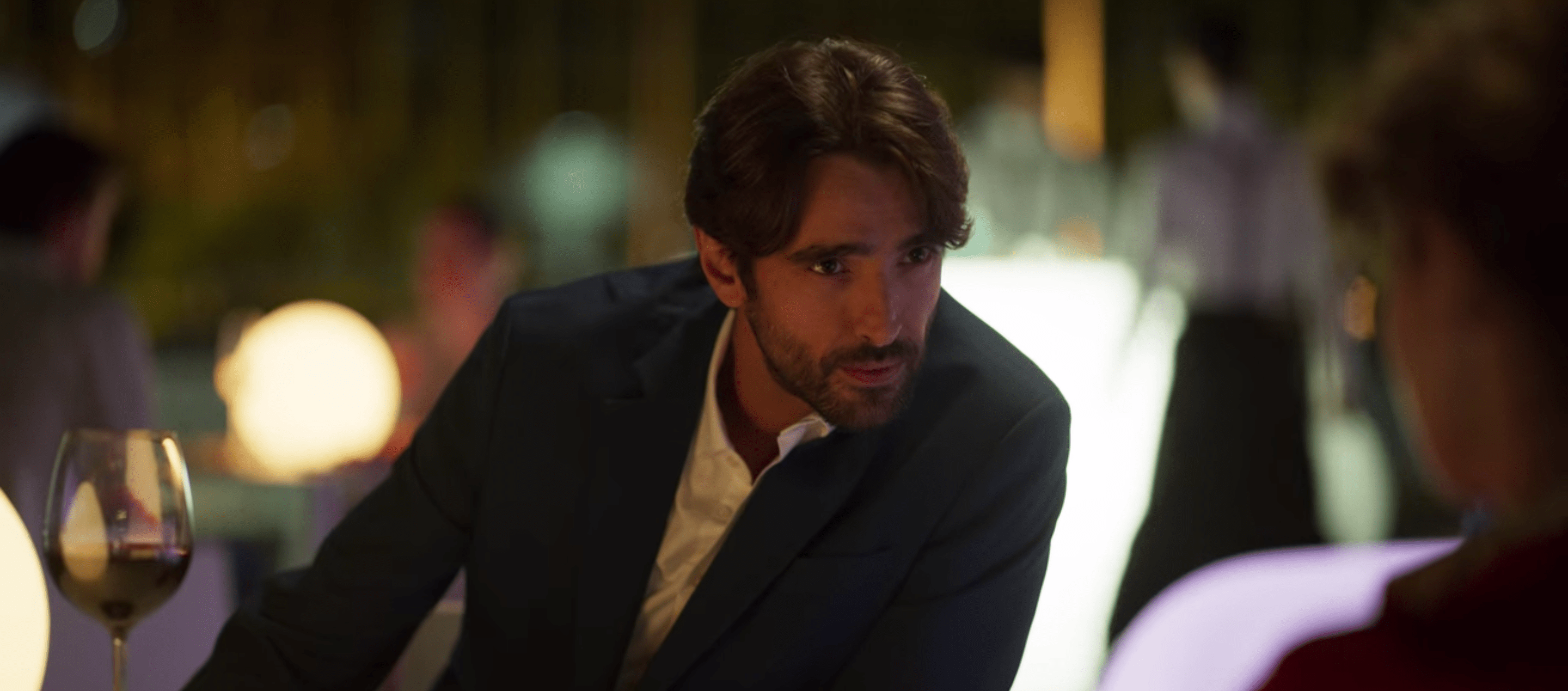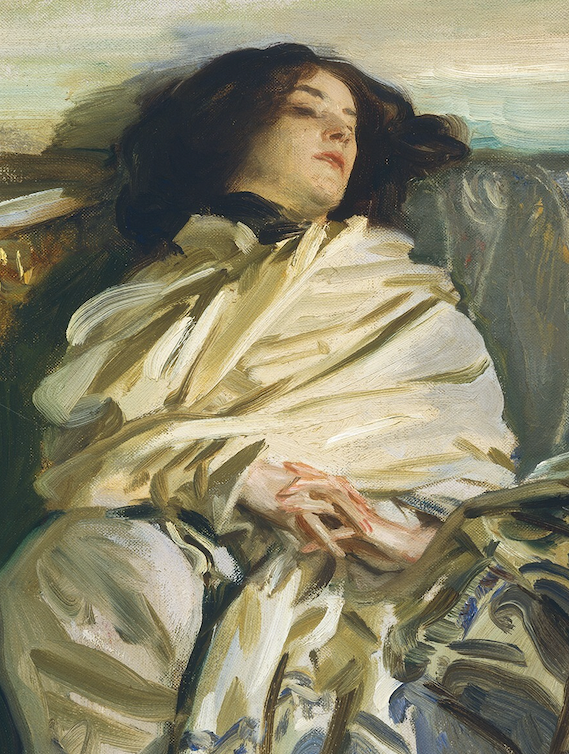Let us raise our voices and praise the Casting Directors who have brought before our eyes these many and varied Genetically Blessed Faces!!
Okay, okay, maybe that’s not a fair place to start a review about Valeria, which explores the deep and intimate love characteristic of women’s friendships. The series, which is written, directed, and casted by women, follows the protagonists in their halting, but determined, journeys toward self-fulfillment as they grapple with their own insecurities, familial relationships, work dynamics, their friendships, and romantic entanglements. The last of which are especially (and refreshingly) always depicted from a female gaze and focused on women’s desires and pleasure. Though that, I suppose, could bring us right back to those Genetically Blessed Faces, which, at least for this woman writing this review, are very enjoyable to watch.
(This is also a show that will definitely get written off as “fluff” or “gal-pals” or a “chick flick” or some other demeaning nonsense, and I would just like to preemptively like to say FUCK OFF and I won’t hear it and just because it’s made by and for women doesn’t mean you get to dismiss it as less important or silly or anything else.)
Valeria (Diana Gómez), a twenty-eight-year-old writer, has been married to Adrián (Ibrahim Al Shami J.) for nearly six years and she’s stuck. She’s supposed to be writing a novel—the deadline has already been moved once—but she can’t get any words on the page because she’s terrified she’ll realize she’s not good enough. She and Adrián—a photographer stuck doing studio portraits instead of more fulfilling work—used to share a passionate kind of hopefulness for each other and for the future, but now they fret separately in their Madrid apartment about having to give up their dreams for more mundane work, and they talk around the hard subjects with each other, rather than through them.


Who Valeria can talk to are her three closest girlfriends Lola (Silma López), Carmen (Paula Malia), and Nerea (Teresa Riott). She leaves them rambling voice messages that they lovingly call “podcasts” and insists that they all meet up for beers to listen to her problems and commiserate about their lives. Lola, whose mother left when she was young, believes in independence and, above all else, sex without strings attached. (She’d probably make some kind of joke here about being okay with strings being attached if they’re used for bondage.) She’s convinced she can maintain the upper hand and emotional distance in her affair with Sergio (Aitor Luna), the married man she’s been banging for awhile. Her friends are far less convinced, and, as is usually the case with friends, they’re absolutely right. She works as an interpreter for conferences, separated from other people by a glass wall, her disembodied voice piped into their ears via headphones. Her work just might serve as a symbol of the emotional distance she tries to maintain from people in order to protect herself from getting hurt, but, you know, the actual and literal glass wall is pretty subtle, so I’m just spitballing.


Nerea lives with her conservative parents on the outskirts of Madrid. She didn’t even want to study law, but at their behest she got her degree and now works at the family law firm, indebted to them financially and emotionally. Out as a lesbian to pretty much everyone except her family, Nerea is kind and caring, but also sheltered and haughty. She’s stuck living inside a mostly heterosexual framework with her closest friends, which leaves her both emotionally and sexually frustrated. She’s often my favorite for her calm and blunt honesty.

Carmen works at an ad agency where she has a ginormous crush on a coworker named Borja (Juanlu González). She tries to orchestrate run-ins with him in the hopes that he’ll ask her out or that she’ll work up the nerve to ask him out, but, as she explains to her friends, when she’s around him she can’t speak because she starts to think about things like if it’s been a long time since she’s blinked. I love and respect each and every one of Carmen’s worries. Soon enough she and Borja do get together and Carmen continues to express all of those insecurities that the patriarchy has ingrained in so many women about being too smart or not attractive enough or wanting sex too much or succeeding too much or just being too much in general while trying to navigate their relationship and her career.


Anyway, you know what’s coming next for Valeria because it’s the one element lacking thus far in a series about a twenty-eight year-old blocked writer with her marriage possibly headed for the rocks.
Aliens!
No, it’s a man with a Genetically Blessed Face with whom Valeria has a mutual, instant, and unignorable chemistry. Lola insists on dragging all of her friends out to a party for her friend Victor (Maxi Iglesias), an architect who has just returned from Berlin. But then, Nerea misses her train, Carmen finally gets her moment with Borja, and Lola gets distracted by Sergio’s mouth, which leaves Valeria alone at a party where she doesn’t know anyone. She ends up talking to Victor who insists she shouldn’t compromise on her dreams of writing (which is the exact opposite of what Adrián has been saying) and it’s better to regret doing something than to be left wondering what if. Victor, is of course, kind of a cad at first. He’s the kind of guy who enjoys the chase more than anything else and he comes across, at least to me, as pretty manipulative. That first night, while staring all sultry into her eyes (Maxi Iglesias and his eyebrows are extremely skilled at sultry looks and intense gazes), he suggests that she write an erotic novel—reader, I snorted—and a few days later he texts her to say that “he sees her as the protagonist” of said erotic novel, which she seems to think is sexy, but I found icky, though when I was in my twenties? Well, that might have been a different story.


Valeria does take his advice and write a draft of an erotic novel—for which she relies heavily on internet porn because her sex life with Adrián is extremely non-existent—which turns out terribly because, as her friends and editor both explain, it doesn’t feel real at all. The sex, they say, is too perfect. This point amused me because while the series does show a couple of, shall we say, penile misfires, its many and sundry sex scenes are not exactly filmed under fluorescent lights at the equivalent of the local Gas n’ Go. These people look damn good doing the dirty every single time. And no one ever seems to struggle making sex work in physically awkward circumstances. But that is all really neither here nor there, though you should just generally be aware that there are a whole lot of sex scenes, which is not a complaint, just a point of order.


Does it sound strange to say that I enjoyed how much Valeria infuriated me? It’s true. I felt exasperated with her in much the same way that her fictional friends did. It was frustrating to watch her indecision, her refusal to face her problems, her difficulty compromising, and the way she let her insecurities sabotage her opportunities, but only because those flaws felt so realistic. And the same was true for the rest of the characters, some of whom may start off feeling narrow and small, but gradually open up and grow (yes, that includes Victor and his cejas) into far more interesting and layered people as the series progresses. In the same way, it’s interesting to watch how the four women’s friendship changes and deepens—through disagreements, shared experiences, more vulnerability—over the course of the series.

When they have discussions and arguments about feminism, sexism, sex, orgasms, periods, vibrators, and sexual assaults they feel natural and messy. People don’t always get the answers right, their actions sometimes contradict their words, and they sometimes say some really stupid shit. None of it feels ham-fisted—not even the episode that clearly opens with an in-your-face message about sexual assault. I also enjoyed the way the series sometimes folds in peripheral characters, like Miriam (Laura Corbacho), a colleague of Nerea’s from a volunteer job, to have more central roles in the series. The second season especially takes things in unexpected directions for characters’ romantic and professional lives, allowing them to make space for themselves in ways that take strength and bravery. I will admit that some of the second season felt stretched out, but I think that’s what happens in a show where the first season is so fresh and unexpected. Plus, a lot more time was dedicated to the characters’ figuring out how to best be true to themselves, and I for one am not going to complain about that. And there’s a hint of a possible new love interest for someone that promises to shake everything up if and when there’s a third season.
I would, however, like to lodge a serious complaint with everyone involved in the decision to restyle Nerea’s hair for the second season to the confusing mess of half-straight, half-curled. It was distracting and I would like for it to stop. Also, while I’m lodging complaints, sometimes when Valeria is writing she has a kind of self-satisfied smile on her face and no. Just no. I realize it’s got to be hard to portray something as internal as writing on the screen, but smiling? Come on. And on a rough draft? Talk about unrealistic!


Look, this is one of those shows that I like, but I have difficulty communicating to someone else all the reasons why. Some of it has to do with the bright bold colors—teal, red, pink, orange—that are pulled into each scene. Some of it has to do with the characters that feel real and warm and welcoming, but still just distant enough to get swept up in the story. Some of it has to do with how Madrid looks and feels so tangible that it’s nearly another character. Of course, a lot of it has to do with focus on Valeria, Nerea, Carmen, and Lola, the sum of whose love and friendship will always be greater than their differences. And yes, there are those Genetically Blessed Faces.
Overall Rating on the Chronically Streaming Pain Scale:



2 thoughts on “Review: VALERIA is Worth Watching for the Plot and the GBFs”